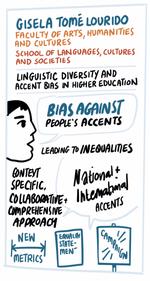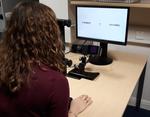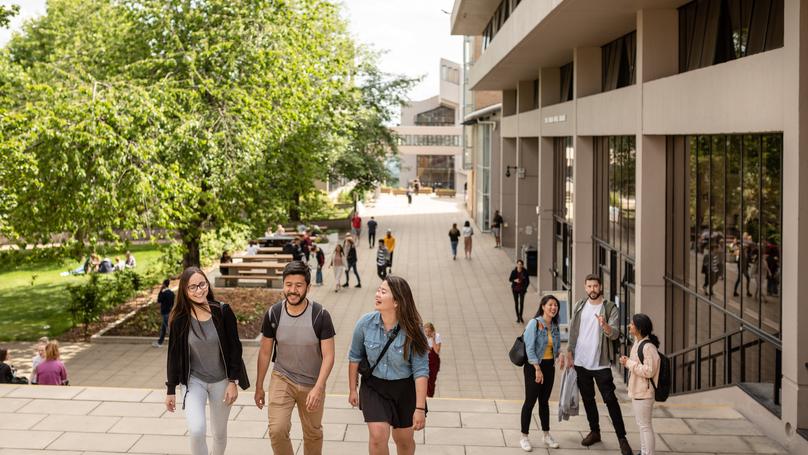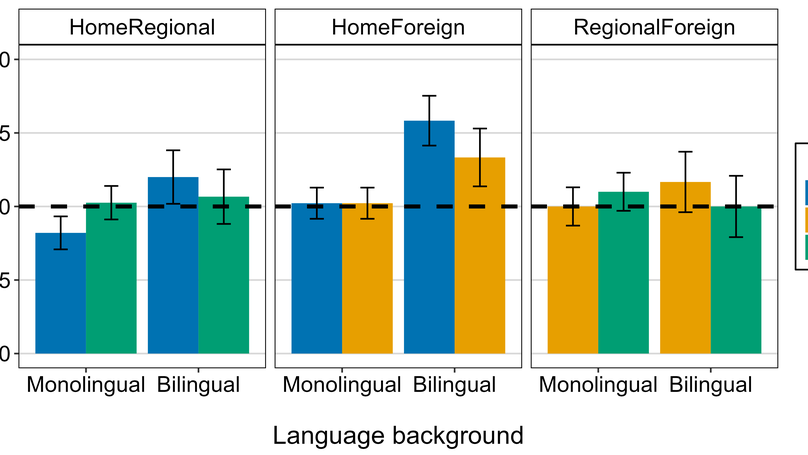Biography
Gisela Tomé Lourido is an Associate Professor in Sociophonetics in the Linguistics and Phonetics department at the University of Leeds. Her research interests are in accent variation, bias and inequalities in bilingual and monolingual populations.
She is the Director of Language@Leeds, a network addressing key societal issues through the interdisciplinary study of language. She co-leads the Language@Leeds ‘Embracing Linguistic Diversity’ satellite, a working group developing a series of initiatives to celebrate linguistic diversity and minimise language-based prejudices and disadvantages, starting from our University context.
She welcomes PhD applications on accent bias and inequalities, the role of accent variation in speech processing in first- (L1) and second-language (L2) listeners, and Galician speech production and perception.
- Accent bias and inequalities
- Sociophonetic variation in speech production and perception
- Bilingual speech processing
- Galician phonetics
- Second language speech learning
PhD in Speech, Hearing and Phonetic Sciences
UCL
MA in Phonetics
UCL
Mestrado Universitario en Profesorado
Universidade da Coruña
Licenciatura en Filoloxía Inglesa
Universidade da Coruña
Projects
Recent Publications
Contact
- B.14 Michael Sadler Building, University of Leeds, Leeds, LS2 9JT
- Message Me



